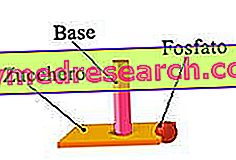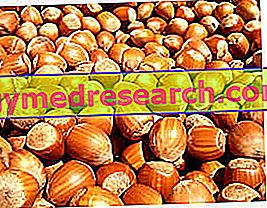
The unpleasant feeling of tiredness and drowsiness after a meal rich in carbohydrates seems to be a fairly common problem. Doctors consider it a possible symptom of insulin resistance, but this feeling certainly embraces people in perfect health.
The possible reasons behind the phenomenon are numerous.
One of the most recent hypotheses calls into question the so-called exorphins, opioid peptides - such as the so-called gliadorfin or gluteomorphine - which are formed during the digestion of gluten. These peptides, analogous to the now famous endorphins, if absorbed such and which would be able to bind to the opioid receptors of the brain, disturbing their activity. In subjects with exaggerated intestinal permeability (see syndrome of dripping bowel), the absorption of these peptides could disrupt brain activity, to the point of having a role in the appearance of autism in children. However, this is a fairly recent hypothesis without significant scientific confirmation.
The hypothesis that causes a sense of tiredness and drowsiness after a meal rich in carbohydrates would be much more navigated would be the gastrointestinal congestion, linked to the digestive effort. In essence, to digest a particularly abundant meal, the digestive organs require large amounts of oxygen, obtained by reducing the flow of blood in other districts in favor of the digestive one. Fatigue and drowsiness would therefore be a consequence of the reduced blood supply to the brain. Even this hypothesis appears to be rather remote, since the flow of blood and oxygen to the brain is strictly regulated and does not decrease significantly after meals.
Another rather common hypothesis concerns the state of reactive hypoglycemia resulting from the massive insulin secretion . After a meal rich in carbohydrates, it happens that large amounts of glucose flow quickly into the bloodstream, causing a large increase in blood sugar; the pancreas responds to this condition by releasing large amounts of insulin into the bloodstream.
Insulin works by promoting the entry of glucose from the blood to the cells; consequently, when too much glucose is secreted in the blood, it is lowered excessively and symptoms typical of hypoglycemia arise, including drowsiness.
Insulin also promotes the entry of potassium into the cells, so an excess of the hormone could create a state of slight hypokalaemia (reduced concentration of potassium in the blood), responsible for fatigue and muscle weakness.
Also reiterated is the hypothesis according to which the huge quantities of carbohydrates introduced with the diet would favor the increase of the relative concentration of tryptophan in the blood, thanks to the stimulus on the entry of BCAAs into the muscles. In this way, the competition of the BCAAs being eliminated, the entry of tryptophan into the brain would be favored. Once in the brain, this amino acid is used for the synthesis of serotonin and melatonin, both favoring sleep.
Fatigue and drowsiness after large meals may also depend on the reduced tone of the sympathetic nervous system in favor of the parasympathetic; while the former is massively active in conditions of fasting, fear and danger, the latter prevails in conditions of well-being (digestion, stillness, physical recovery and rest) and therefore favors relaxation and falling asleep.



